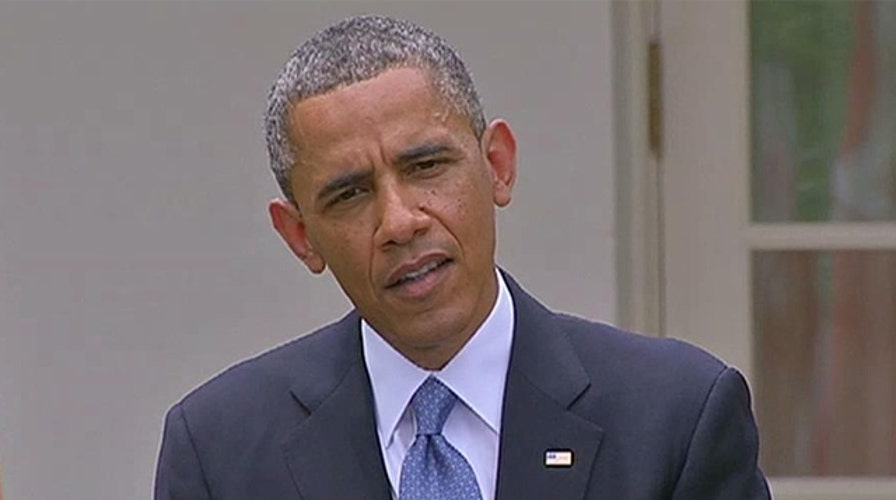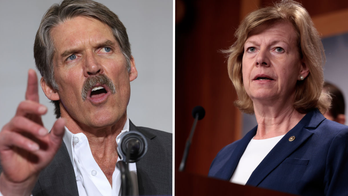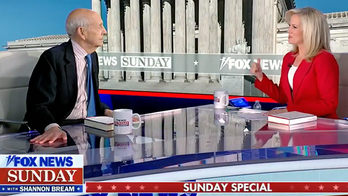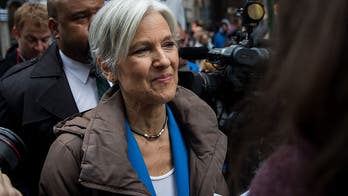Scandals impact Obama's second term agenda
Will the president's administration survive recent blows?
With the furor on the Hill over Washington's favorite pastime -- scandal -- it's easy to forget that lawmakers have some important business to confront.
The debt ceiling, you may not have noticed, was hit over the weekend. Then there's the budget, immigration, jobs, the Keystone pipeline and more, all piling up in the inbox.
While President Obama vowed Friday he wouldn't let "every fleeting issue" distract him from his focus on the middle class, Congress' bipartisan response to at least three scandals effectively has become part of its 2013 agenda.
On the House side in particular, lawmakers are launching hearings and investigations, pledging to fulfill their oversight responsibility. This inevitably squeezes out time for Washington's other priorities.
In a reminder of the work still to be done, Treasury Secretary Jack Lew notified Congress Friday that he was taking "extraordinary measures" so the government can keep paying its bills. The action came as the U.S. government technically hit the debt ceiling, since a prior suspension on that limit expired.
This game of chicken was big news when it happened in 2011, the full faith and credit of the U.S. government on the line.
Now, it's almost rote. Lew even referred to the "standard set of extraordinary measures" in his letter to House Speaker John Boehner on May 17.
But Lew cautioned in his letter that Washington probably can last until sometime after Labor Day, and that: "Congress should act sooner rather than later to protect America's good credit and avoid the potentially catastrophic consequences of failing to act until it is too late."
As in 2011, and with subsequent debt-ceiling standoffs, congressional Republicans are expected to seek cost-cutting concessions to at least partially offset the increase in the debt ceiling.
They have not said, though, exactly what those will be.
Boehner spokesman Michael Steel told FoxNews.com that Congress has "just begun the process of talking with members" and the American people on how to address the debt ceiling, as well as "Washington's out-of-control spending." He indicated lawmakers could handle addressing the scandals, and everything else.
"Congress has two jobs: legislation -- particularly on jobs -- and oversight," he said in an email. "The House will continue to work on both. This week, we will consider legislation on the Keystone pipeline, and student loan measure similar to the proposal in the president's own budget."
Boehner himself was adamant that Congress do both.
"Listen, jobs is our primary focus," he said last week. "But while we're focused on that, we're also focused on holding this administration accountable."
He added: "This House will stop at nothing to get to the American people the answers and the accountability that they expect."
While congressional leaders say they can walk and chew gum -- rather, legislate and investigate -- it remains to be seen whether one of the two tasks will suffer. Obama, too, is caught between trying to pursue his second-term agenda and responding, almost daily, to new allegations.
The House is most focused on continuing to investigate the administration's handling of the Benghazi terror attack, the IRS' practice of targeting conservative groups for additional scrutiny and the Justice Department's seizure of phone records from Associated Press journalists. The latter scandal was compounded after revelations that the department obtained a search warrant for a Fox News' reporter's private emails as part of a separate leak investigation.
On Obama's end, the scandals and the ensuing probes mean part of his administration's staff will be devoted to answering investigators' questions.
Andrew Card, former chief of staff to former President George W. Bush, told Fox News that the White House counsel's office will be closely focused on White House cooperation with the investigations. He said he suspects the current chief of staff, Denis McDonough, is keeping the president and his senior staff focused on other matters.
"This is a tense time at the White House ... but they should be focusing on their job," Card said.
For now, Congress appears to have moved beyond the issue of gun control, which until recently was a priority for Obama in his second term.
But the issue of the budget, including the possibility of major entitlement and tax reform, still looms. The Senate and House have each passed a budget of their own, an accomplishment of sorts in a capital where doing even routine tasks has become strenuous, but an agreement has not been reached on ironing out the differences between the two versions.
Some work on Capitol Hill will likely go on unaffected by the scandals. A Senate committee is moving toward finalizing its work on an immigration bill this week, while bipartisan House negotiators are crafting a bill of their own.





